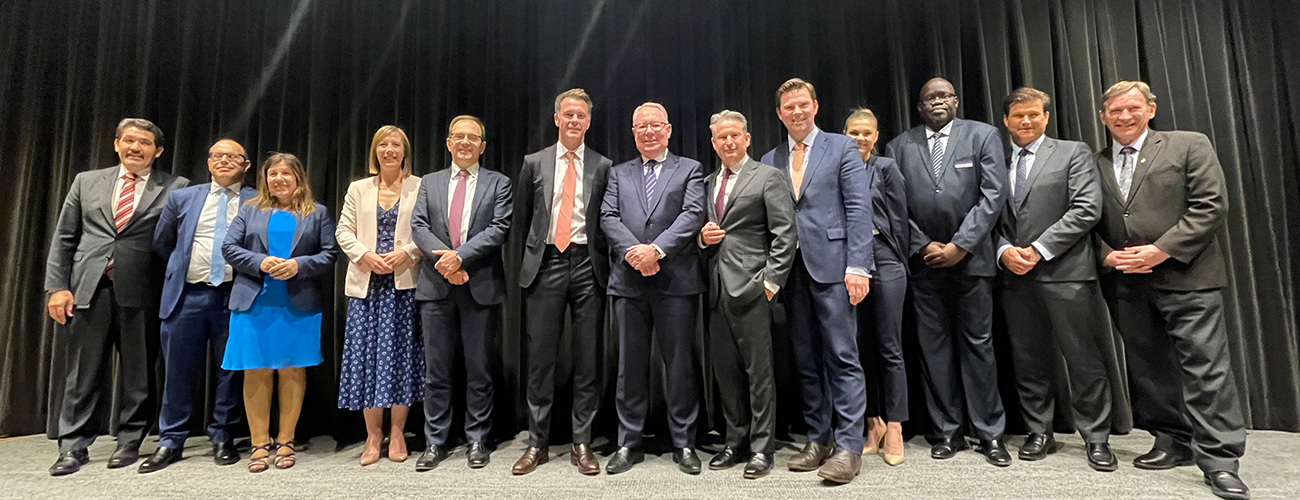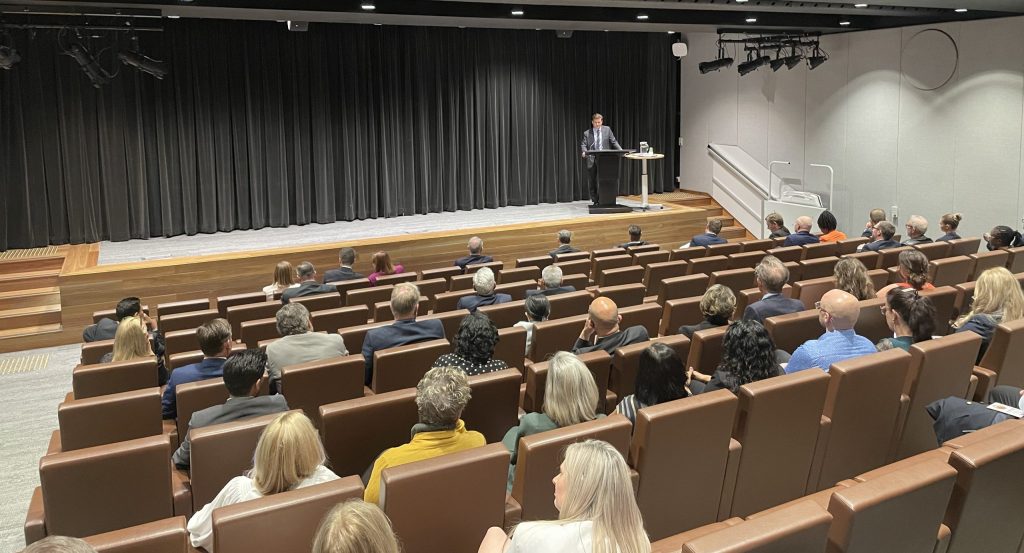
On 9 November 2022, our CEO, Ray Messom, was invited by Stephen Bali, Honourable Member for Blacktown, to present to parliament the innovative ideas generated from the community forum at the recent WEXPO event. The presentation was well attended by members of parliament, partner organisations and community leaders. Ray showcased the diversity of our community and the success of multi-agency programs at improving health and social factors, and called upon government to invest in social infrastructure, health, wellbeing and community resilience through a Western Sydney Community Impact Fund. His speech is outlined below.
Thank you to the Honourable Member for Blacktown, Stephen Bali for this wonderful opportunity.
I can feel the energy in the walls of parliament, a place of vision and debate, and where, collectively, NSW pushes for change to secure a better tomorrow.
I would first like to acknowledge the people here from Western Sydney, those who have travelled from Darug land. As I speak today about the ideas generated at WEXPO, I speak on their behalf and for those that could not join us. I can only hope I do them justice. I would also like to acknowledge the Gadigal people of the Eora Nation, whose land we are on today and any Aboriginal people present.
Western Sydney is the fastest-growing and most diverse community in Australia.
The population has grown by 230,000, or 10%, over the last five years.
46% speak a language other than English at home.
We are the proud home of over 17,000 Aboriginal people, 185,000 Arabic, 102,000 Mandarin, 95,000 Vietnamese, 63,000 Cantonese, 58,000 Hindi and many other cultures.
But what was clear at WEXPO is that Western Sydney needs our support.
There is inequity.
Some of our LGAs have the highest proportion of people receiving unemployment benefits and the highest proportion of Jobseeker beneficiaries, exceeding 7.5% in some areas.
There is disadvantage.
Access to health care is limited, with cost being the main reason. This, in combination with social-economic factors, results in lower overall health.
In fact, if we closed the gap between the most and least socially disadvantaged groups we would:
- Spare half a million Australians from chronic illness
- Save $2.3 billion in annual hospital costs
- Reduce Pharmaceutical Benefits Scheme prescription numbers by $5.3 million annually
But it’s not just individual needs and means which prevent access.
Despite significant growth in the population, a GP has not moved to outer Western Sydney, in and around Mount Druitt, for more than a decade.
The rates of out-of-home care, interaction with the justice system, single-parent households, unpaid childcare and disability support are higher.
Regular access to healthy food and physical activity are less common.
But the future looks bright if we act now.
It is our responsibility to support Western Sydney and provide opportunities for its people to thrive.
So today, on behalf of those attending WEXPO, I put out a call to action, and that is to invest in a Community Impact Fund where investments are made by the community for the community.
The NSW government is investing in WestInvest to build physical infrastructure. Today we are asking for a similar investment in social infrastructure, health, wellbeing and community resilience.
This community-first approach is not new.
Integrated Care systems like those seen in the UK, use organisations like Primary Health Networks to facilitate investments in great organisations, communities and enterprises through local-led governance structures and decision-making. They utilise social impact investments to fill gaps that cross the traditional siloes of education, health and social service.
Traditional mechanisms cannot address the complex challenges of tomorrow. Whether it be domestic violence, reducing the rates of suicide or intervening early to prevent a child from being removed from the home.
WentWest, and the community leaders attending WEXPO, see a Community Impact Fund as a way to change the status quo.
A way to give the community agency.
A way to break the cycle of disadvantage in this generation rather than the next.
Thank You.
